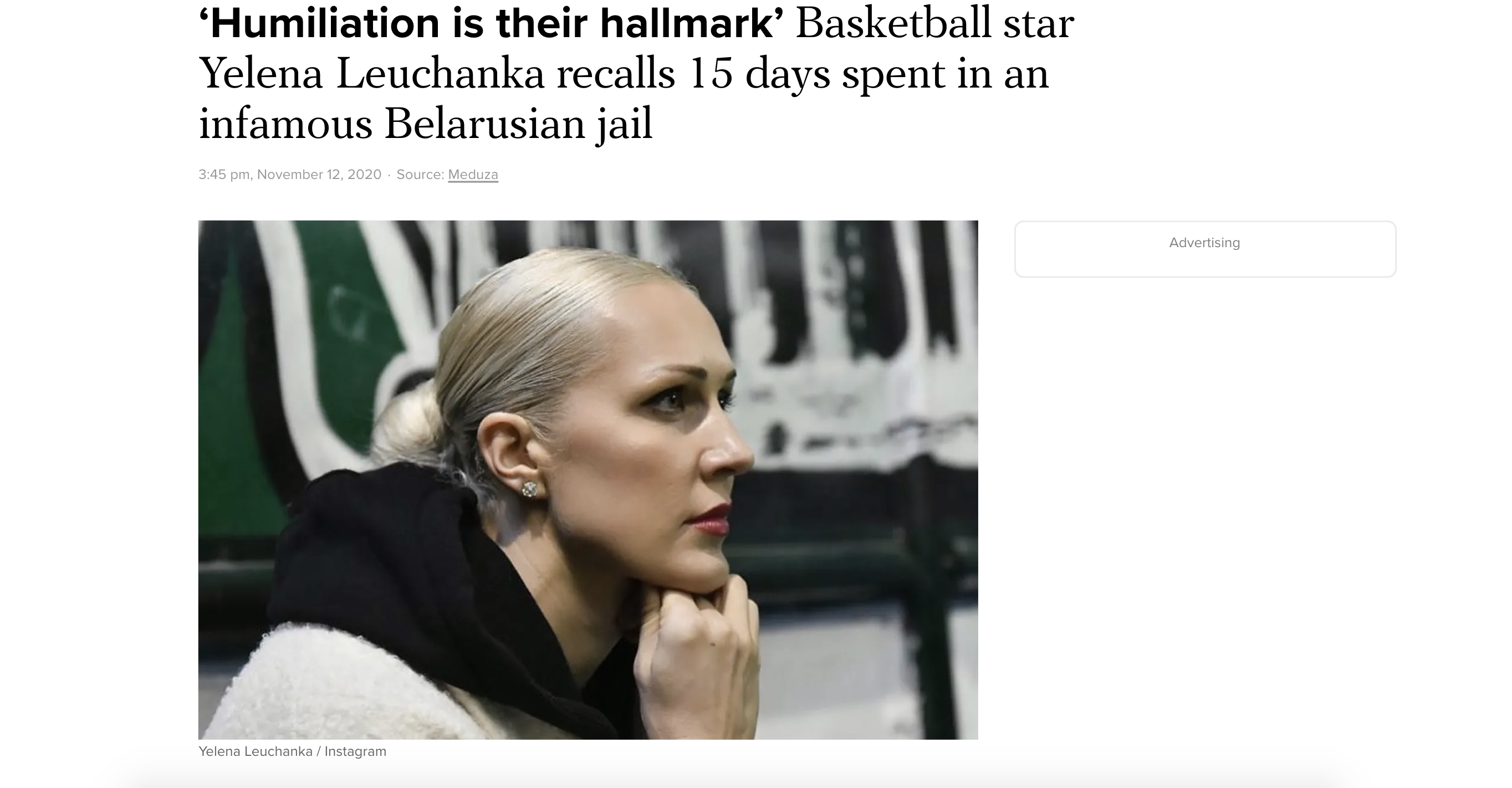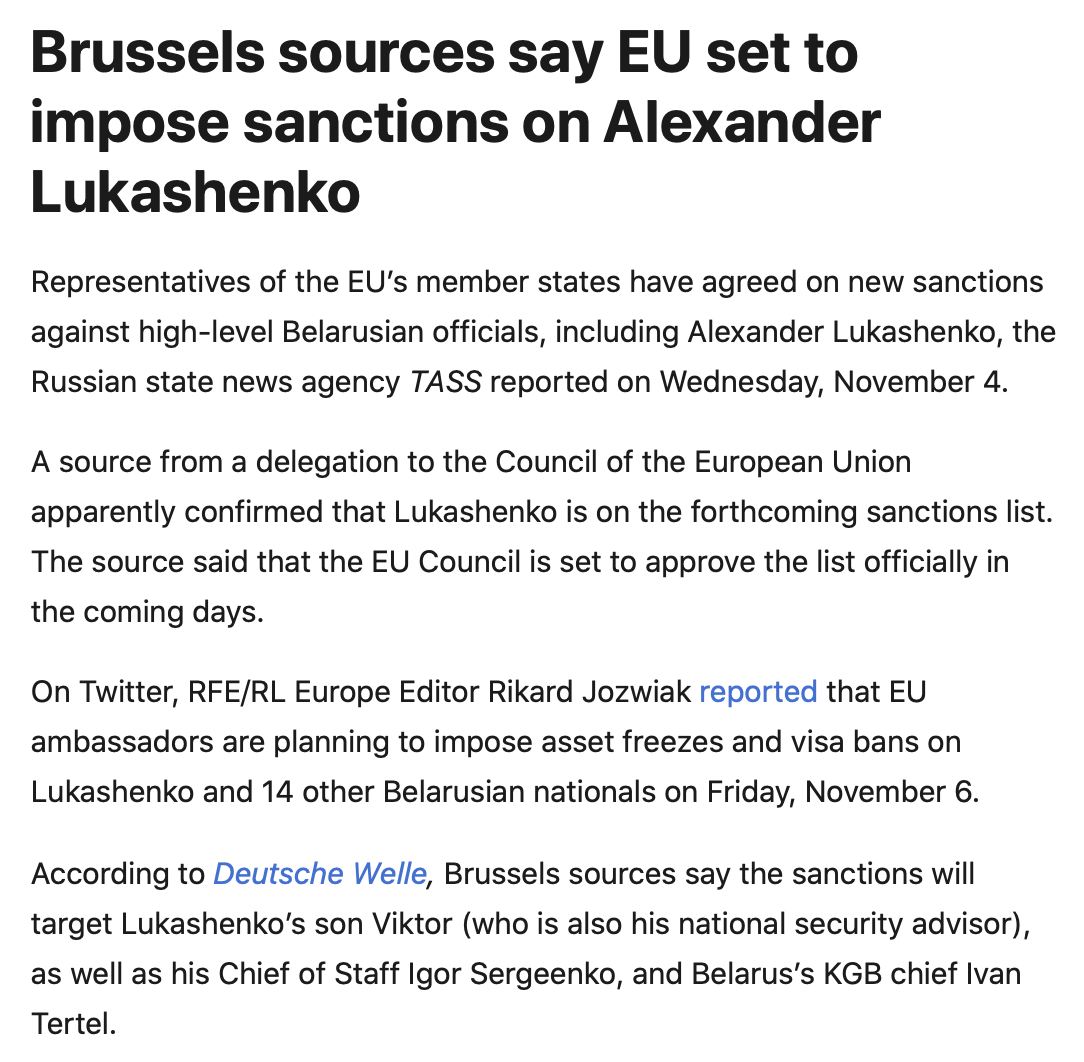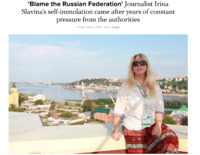Items
Tag
Censorship
-
‘Humiliation is their hallmark’ Basketball star Yelena Leuchanka recalls 15 days spent in an infamous Belarusian jail
Yelena Leuchanka, a Belarusian basketball player, was recently arrested and kept in the Okrestina detention center for her participation in protests opposing the Lukashenko regime. Her story speaks to the broader human effects of the continuing protests in Belarus, as well as the ways that the state cultivates strong complicity amongst its constituents. -
St. Petersburg Authorities Disrupt LGBT Film Fest Opening
The Side By Side film festival, Russia’s only annual LGBT film festival, was interrupted by police and officials from Russia’s ministry for consumer safety (Rospotrebnadzor) on opening night in St. Petersburg. These officials demanded that festival participants leave the space immediately, using “force and rude language,” which caused the organizers to cancel the screening because of safety concerns. According to Alina Pchelintseva, the festival spokesperson, the police did not offer a reason for why they showed up, and Rospotrebnadzor only had permission to “check for coronavirus prevention measures.” Seemingly, their goal was to intimidate festival organizers into shutting the festival down because they lacked legal justification to do so otherwise. -
Brussels sources say EU set to impose sanctions on Alexander Lukashenko
This article reports on the EU sanctioning Alexander Lukashenko -
‘I will remember her ashes forever’ Why Nizhny Novgorod’s most independent journalist, Irina Slavina, burned herself alive in front of the local police station
The death of Irina Slavina, co-founder and editor-in-chief of the free journalism KozaPress, is the living evidence of media censorship and violation of free speech in Russia. -
Pussy Riot activists arrested in Moscow for hanging rainbow flags on government buildings to mark Putin’s birthday
Two members of the Russian feminist music group Pussy Riot were arrested this week for participating in a protest in demand of LGBTQ rights. The activists hung rainbow flags around Moscow on government buildings including the Presidential Executive Office and the Supreme Court. A journalist covering the event, Artyom Radygin, was arrested and later released, although his cell phone was never returned to him. These arrests point to the Russian government's censorship of any form of speech that criticizes or opposes them. -
‘Blame the Russian Federation’ Journalist Irina Slavina’s self-immolation came after years of constant pressure from the authorities
This article points to the political parties (in Russia) responsible for the death of the correspondent Irina Slavina. -
‘You have no masks’ Meet the Belarusian developer working on a facial recognition algorithm for doxing riot police
In response to severe police suppression of protests in Belarus, developer Andrey Maximov designed a program that exposes the identities of police officers accused of abuse. While this is a positive evolution in terms of the Belarusian people's tactics of non-violent direct action, its efficacy will only be revealed by the nature of the response of the Lukashenko regime. -
St. Petersburg Schoolchildren Screened for LGBT ‘Propaganda’
Teachers in St. Petersburg were instructed to search their students' social media pages for LGBT symbols and to report any student who posted an LGBT symbol to the police. This order was defended as a way of protecting children's rights, consistent with Russia's law banning "gay propaganda" from being shown to minors. However, this is an example of how LGBT youth are being denied access to crucial resources and support in a country where they are already discriminated against. -
Moscow court orders domestic violence victim to pay ex-husband damages over Facebook post
In a Moscow court ruling, Irina Zhivova was ordered to pay her ex-husband approximately 10,000 rubles for using the words "inflict a beating" in a Facebook post about domestic violence. This court order set a precedent that victims of domestic violence cannot speak out about their experience until a judicial decision has been reached. In Russia, there no law defining domestic violence, making it difficult for survivors to obtain protection. This court ruling further silences women, illustrating the dire need for change in how domestic violence is viewed and dealt with.








